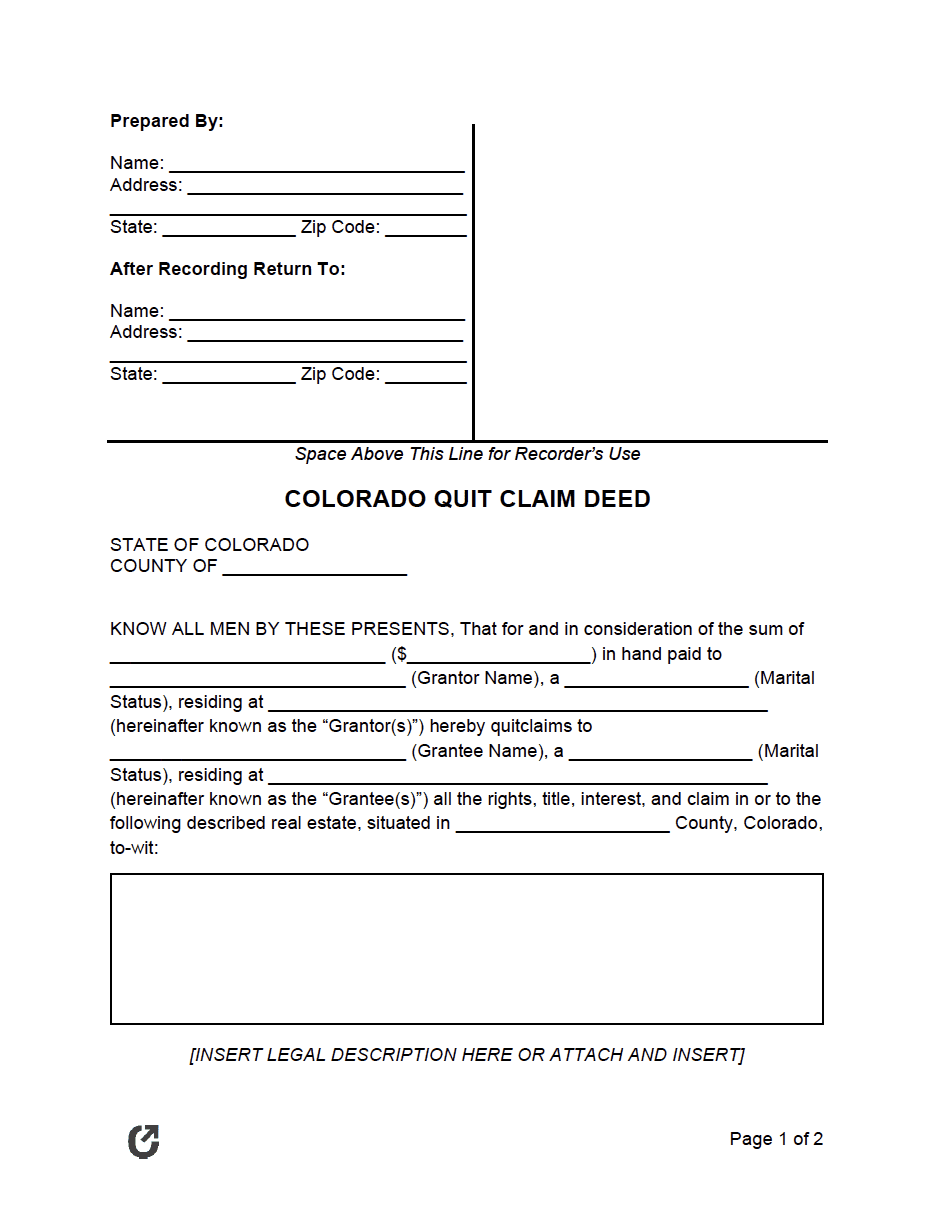Colorado Quit Claim Deed Form
A Colorado quit claim deed is a legal contract used for conveying real property (land and/or physical structures) from the current owner (grantor) to the new owner (grantee). Unlike warranty deeds, there are no protections offered to the grantee in that the deed is free of problems.
Should the property have an existing lien (for example), the grantee would absorb the responsibility of clearing it themselves. Because of this, title companies are frequently reluctant to provide title insurance until a thorough title search has been conducted.
Laws
|
How to Complete the Form
Step 1 – Prepared By & Return To
For the “prepared by” section, enter:
- The full name of the person preparing the form. This can be the grantor, an attorney, or another person the grantor has requested completed the deed.
- The preparer’s full address, including their street, city, state, and ZIP code.
For the “return to” section, the preparer will need to enter the full name and mailing address of the recipient, or the person the deed should be sent to after recording. More often than not, this will be the grantee.
Step 2 – Consideration
Enter the amount of money (if any) the grantee paid to the grantor for the property. In the first field, enter the amount in words, such as “Two-hundred thousand dollars”. In the second field, enter the value as a number, such as “$200,000”.
Step 3 – Grantor + Grantee Info
Enter the names, marital statuses, and addresses of the grantee(s) and grantor(s). For example, if the grantor is a married couple, it would be written as “John Smith and Katy Smith, a married couple”.
Step 4 – Property Description
After inputting the grantee and grantor’s information, enter the Colorado county the property is located in, followed by the property’s legal description. The description can be found on a previous deed or at the local recorder’s office.
Step 5 – Signing + Notarization
The grantor(s) will need to write their signature(s) in the spaces provided in the presence of a notary public, who will then sign and stamp the deed. The grantee(s) do not sign.
